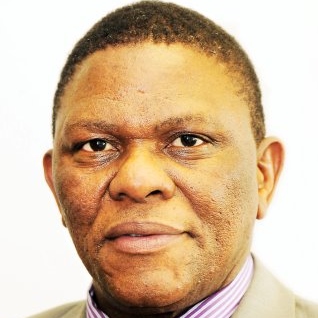
OpEds

Implications of recalling South Africa’s ambassador to Israel
STEVEN GRUZD
Hamas had been driving the Gaza protests for weeks against 70 years of Israel’s existence and the relocation of the US embassy to Jerusalem. What does this recall mean domestically and for South Africa-Israel relations?
Recalling an ambassador has its roots in arcane diplomatic conventions. In past centuries, envoys were summoned back to their own capital cities for consultations, often to explain and strategise about serious events in the host country.
Physically returning home would enable the ambassador and the foreign ministry to confer confidentially and not risk sending sensitive messages by post, courier or telephone. Sometimes, the host country would retaliate by recalling its own ambassador. The embassies carried on with their business in the absence of their political heads.
In today’s digital age, when these consultations occur through encrypted, secure channels and hence, can take a few hours rather than a week, recalling an ambassador is more symbolic than substantive.
Nevertheless, an ambassadorial recall is a powerful public signal of diplomatic displeasure. The press release announcing the recall of Ambassador Sisa Ngombane “with immediate effect until further notice” by the department of international relations and co-operation was laced with emotive language: “The South African government condemns in the strongest possible terms the latest act of violent aggression carried out by Israeli armed forces,” it read, and went on to condemn “the indiscriminate and grave manner of the latest Israeli attack”.
Statements by the ANC, the Economic Freedom Fighters and BDS South Africa were, predictably, even more vitriolic. They called for the expulsion of the Israeli Ambassador, Lior Keinan. This has not occurred. A reciprocal recall would be tantamount to admitting defeat, giving the anti-Israel lobby exactly what it wants, and abandoning the South African Jewish community.
The ANC refracts the Palestinian struggle for statehood through the prism of its own experiences. It blames the implosion of the peace process and the receding prospect of a two-state solution primarily on Israel. The recall will further strain the frayed relations between South Africa and Israel. South Africa, never a significant player in peace talks, has surely now burnt any credibility with the Israelis.
To my knowledge, South Africa has never recalled an ambassador from anywhere else in the world. This feeds the perception that it unfairly targets Israel. In 2010, Ambassador Ismail Coovadia was recalled from Israel for about six weeks following the deaths of nine people on a Turkish boat in a flotilla attempting to breach the blockade of Gaza by Israeli forces.
The current recall gives impetus to the ANC’s December 2017 national elective conference resolution to downgrade the South African Embassy in Israel to a liaison office. Many had hoped that this radical position would not translate from party resolution into government policy.
Interestingly, it is not the ANC but the tiny National Freedom Party that called for a parliamentary debate on the downgrade. President Cyril Ramaphosa has, apparently, made it clear that the recall is only temporary, to understand the situation better. But with the ambassador grounded in Pretoria, this process might accelerate, despite efforts to avert it by Jewish communal organisations.
The recall has made the South African Jewish community angry, upset and, for some, question their future in this country under an ANC government so openly hostile to the Jewish state.
The recall could also affect ties with the volatile pro-Israel Trump administration, which has threatened aid cuts to countries opposing American positions. South Africa recently emerged as one of the countries that most consistently voted against the US at the United Nations. When President Trump “kicks ass and takes names”, South Africa may find itself on this list. This could potentially cost the country jobs.
While still supporting the Palestinian cause and expressing anger at the violence, other African countries have remained pragmatic and haven’t pulled out their envoys. The only states to do so were South Africa and Turkey. The latter labelled last week’s violence as “genocide” against the Palestinians, yet it has brutally shut down its own democratic space after stifling an attempted coup in 2016.
No doubt the BDS will try to ram home its advantage. Its members have already petitioned Home Affairs Minister Malusi Gigaba to look into imposing visa restrictions on Israeli visitors and go after South African Jews who have served in the Israeli Defence Forces.
The signal of moral outrage has been sent and received. Let’s hope that after a cooling off period, wiser heads will prevail.
Steven Gruzd is a political analyst at the South African Institute of International Affairs




